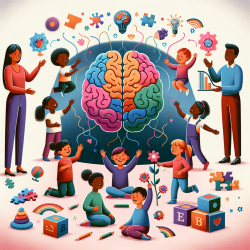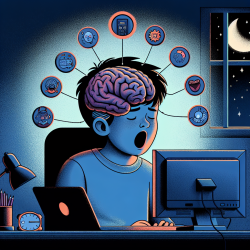Unlocking the Power of Interpersonal Neurobiology for Better Child Outcomes
As practitioners in the field of speech-language pathology, we are constantly seeking ways to enhance our therapeutic approaches to foster better outcomes for children. The recent research article, An interpersonal neurobiology perspective on the mind and mental health: personal, public, and planetary well-being, provides a compelling framework that can be instrumental in this pursuit.
Understanding Interpersonal Neurobiology (IPNB)
Interpersonal Neurobiology (IPNB) is a multidisciplinary framework that integrates insights from fields such as neuroscience, psychology, and sociology to deepen our understanding of the mind and human development. Unlike traditional therapy forms, IPNB is not a therapy itself but a framework that informs therapeutic interventions by focusing on the relational and embodied nature of the mind.
The Core Principles of IPNB
At the heart of IPNB is the concept of integration as the basis of mental health. This involves linking differentiated parts of a system without losing their distinctiveness, promoting harmony and optimal functioning. In practice, this means that mental health professionals can enhance therapeutic outcomes by fostering integration within the child's mind and between the child and their environment.
Practical Applications for Practitioners
- Focus on Relationships: Recognize that the mind is relational and that therapeutic interventions should emphasize the child's interactions with their environment, including family, peers, and educators.
- Promote Integration: Encourage activities and therapies that integrate different aspects of the child's experience, such as combining cognitive and emotional development.
- Embrace a Holistic View: Consider the child's mental health as part of a larger system that includes personal, social, and even planetary well-being.
Encouraging Further Research
While the IPNB framework provides a robust foundation, it is crucial for practitioners to continue exploring and researching its applications in various contexts. This ongoing inquiry can lead to innovative approaches that further enhance child outcomes in therapy.
To read the original research paper, please follow this link: An interpersonal neurobiology perspective on the mind and mental health: personal, public, and planetary well-being.










